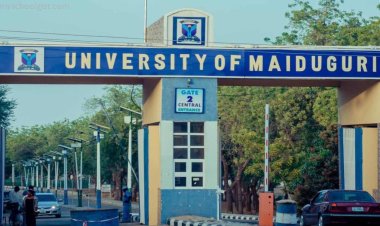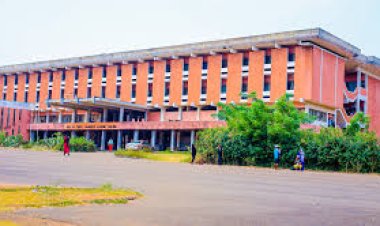UNILORIN VC Prof. Wahab Egbewole Praises Faculty for Research Addressing Agricultural Challenges in Nigeria
The Vice Chancellor of the University of Ilorin has praised faculty members for conducting impactful research aimed at solving agricultural challenges in Nigeria. The studies focus on digital literacy, e-commerce, and financial innovation to empower local farmers, with a focus on community service and societal benefit.
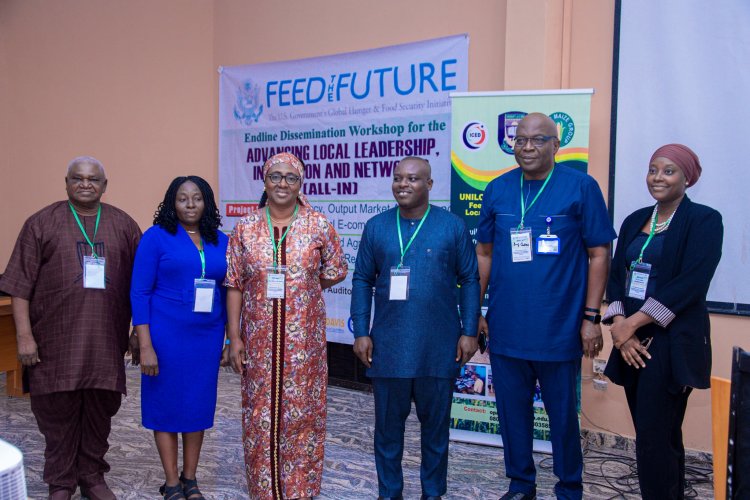
The Vice Chancellor of the University of Ilorin, Prof. Wahab Olasupo Egbewole, SAN, has expressed his appreciation for the research work of two faculty members, Prof. Opeyemi Eyitayo Ayinde and Dr. Khadijat Busola Amolegbe, whose studies aim to address critical agricultural challenges and benefit local farmers. Prof. Egbewole made these remarks on November 11, 2024, at the workshop on Advancing Local Leadership, Innovation and Network at the University Auditorium. The workshop was sponsored by FEED the Future, the U.S. Government’s Global Hunger and Food Security Initiative, and the International Centre for Evaluation and Development (ICED).
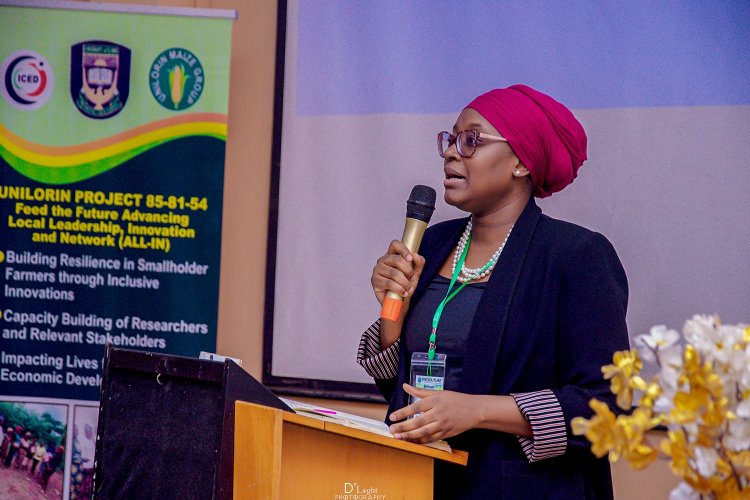
During the event, Prof. Egbewole, represented by the Deputy Vice Chancellor (Academic), Prof. Olubunmi Abayomi Omotesho, emphasized the University’s commitment to ensuring that academic research is directly applicable to real-world challenges. He commended the two researchers for their work in the Department of Agricultural Economics and Farm Management, particularly for projects that have the potential to improve the livelihoods of local farmers.
The Vice Chancellor noted that the work of these researchers aligns with his administration’s Vision 1:10:500 initiative, which seeks to create practical solutions to community issues while also advancing the University’s goals of teaching, research, and community service. He urged more researchers to secure funding and focus on studies that go beyond academic publications, to directly serve and improve the community.
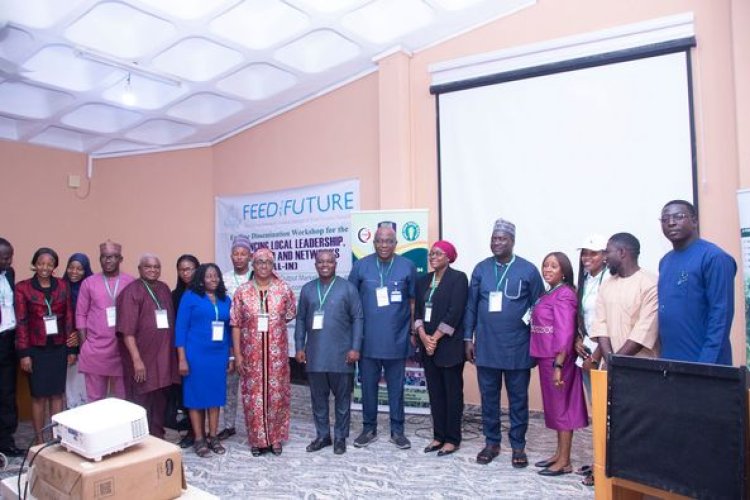
Prof. Egbewole also acknowledged the significant recognition and funding received by the researchers, particularly highlighting that two of the twelve selected proposals for funding came from the University of Ilorin. The Vice Chancellor expressed pride in the University’s contribution to meaningful and impactful agricultural research.
In her speech, the Dean of the Faculty of Agriculture, Prof. Oluyemisi Bolajoko Fawole, congratulated the two researchers for their work, which has not only garnered attention but has also addressed pertinent agricultural issues in Nigeria. Prof. Fawole emphasized the importance of involving local researchers who understand the context and challenges faced by the communities they aim to help. She expressed satisfaction with the recognition these scholars received, especially considering the competitive nature of the grant selection process.
Mr. Kwadwo Danso-Mensah, Director of Research at the International Centre for Evaluation and Development (ICED), also spoke at the event. He highlighted ICED’s mission to shift the traditional research paradigm by empowering African researchers to lead and shape their own research initiatives. Mr. Danso-Mensah explained that local researchers in Africa should be at the forefront of addressing issues specific to their regions, rather than merely assisting in projects initiated by foreign institutions.
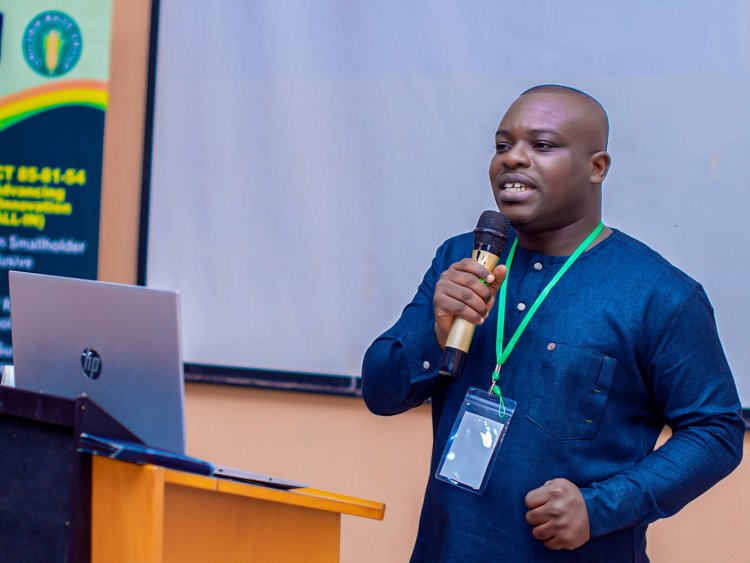
Dr. Amolegbe’s study, titled Digital Literacy, Output Market Access, and the Demand for Rural E-commerce, focuses on bridging the gap between digital transformation and agricultural growth in Nigeria. She pointed out that, despite Nigeria’s status as the largest digital market in Sub-Saharan Africa, only a small percentage of farming households engage in digital e-commerce. Dr. Amolegbe advocated for sustained policy support to strengthen digital literacy programs, which could empower farmers to better access markets and increase productivity.
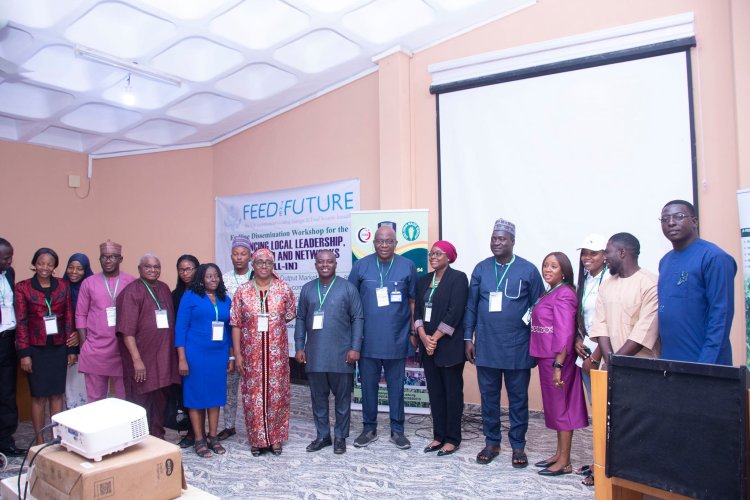
Meanwhile, Prof. Ayinde’s research, titled Linking Financial and Agricultural Innovations for Women Farmers’ Resilience in Nigeria, examined how agricultural risks can be mitigated through effective financial tools. He emphasized the adoption of stress-tolerant maize by Nigerian farmers as a means to improve agricultural resilience. He also called for government and NGO-backed sensitization programs to support small-scale farmers in overcoming challenges.
Both researchers were praised for their contributions, and the Vice Chancellor urged more faculty members to engage in similar studies that not only advance academic knowledge but also contribute to societal development.
For more updates on academic matters, stay informed through Myschoolnews platforms.

 Mary Nwaeze
Mary Nwaeze 

